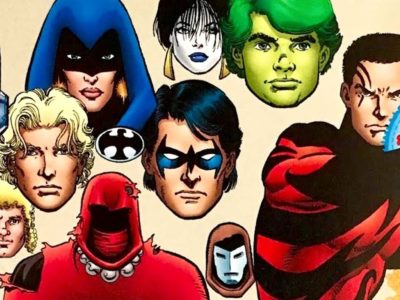
[ad_1]
Peter Parker may always be the “real” Spider-Man, but it’s his clone Ben Reilly that deserves the title of the best Spider-Man.
WARNING: The following contains spoilers for Ben Reilly: Spider-Man #1 on sale from Marvel Comics
Peter Parker’s career as Spider-Man has always been defined by his struggles and his failures. From Uncle Ben to Gwen Stacy, to even just his everyday storylines that see his constantly frustrated attempts to balance his personal life with his super-heroics, being imperfect is a core part of the character. The Clone Saga may have its faults and an infamous reputation, but one of its chief virtues came with the introduction of Ben Reilly who could prove what a perfect Spider-Man was really like.
But in his most recent solo series, Ben Reilly: Spider-Man, the clone loses that characterization as the story leans into an alternate take on the character. The story opts instead for an angst-driven character obsessed with his imperfections and misses the chance to tap into Reilly’s true potential. Peter Parker shouldn’t be the perfect Spider-Man. Ben Reilly should be.
The Clone Saga infamously picked up on an earlier story from The Amazing Spider-Man in which Peter Parker briefly fought a clone of his manufactured by the Jackal who seemingly died in the aftermath of their duel. The story reintroduced the clone as Ben Reilly, a perfect simulacrum who shared Parker’s memories, but who journeyed the world for the past 5 years under the belief he was not the original. During the course of the story, a convoluted plot caused Reilly to believe he actually was the original Peter Parker, and while taking on the mantle of Spider-Man, he proved himself even more capable than Parker as a superhero.
It was during that period in which Ben Reilly: Spider-Man takes place, a new comic by J.M. DeMatteis, David Baldeon, Israel Silva, and VC’s by Joe Caramagna. The first issue proved straightforward enough, showing Reilly settling into his role before the escape of the villain Carrion from Ravencroft caught his attention. Reilly used his empathy to defeat the villain more so than his fighting prowess, hinting at part of what is truly great about the character. What weighed the whole story down was an internal monologue by Reilly that characterized him as an angsty, brooding, grim figure obsessed with his imperfections and jealous of Parker’s place in the world. But there’s already a clone who does that schtick perfectly, his name is Kaine, and Reilly is at his best when he’s the complete opposite.
Reilly’s appearance in The Amazing Spider-Man recently captured those strengths well. There, Reilly excelled in his role as a Spider-Man with corporate backing and none of the interpersonal baggage that so historically weighed Parker down in filling the same role. The unique spin that distinguished Reilly’s Spider-Man apart from other inheritors to the role was that he came from a relatively blank slate. After living for 5 years as a loner rediscovering himself, his return to New York City threw him full force into his life as Spider-Man and, because of his dedication, he marked up early successes such as defeating Venom in a straight fight like Parker never could.
A story necessarily needs conflict, and none of this is to say that being Spider-Man was always a breeze for Reilly. That said, his struggles hinged less on the difficulties of juggling his dual identities and more on building those identities from the ground up to distinguish himself from his predecessor. This is part of the reason that Parker himself admitted Reilly was “a better Spider-Man than [Parker] could ever pretend to be” in Spider-Man #71. A take like this on Reilly’s character allows him to fill a unique niche as an insight into what the hero could really be unfettered and tapped into his full potential.
None of this is to say that it is a bad story, or that it is even the first time that Reilly’s character has been so angst-ridden and obsessed with his imperfections. Thinking of himself as “a bargain-basement knockoff of a human being” as he does in Ben Reilly: Spider-Man #1 could just as easily be a line from 1995’s Spider-Man: The Lost Years. But such characterizations feel redundant and unexceptional when so many of Parker’s own stories center on his brooding self-doubt, and when Kaine already exists as a clone of Spider-Man who cranks those same darker qualities up to 11.
That characterization just makes Ben Reilly’s Spider-Man a version of the story with less of the supporting cast, less action-centric wise-cracking, and nothing original to offer that Kaine’s character doesn’t already achieve to far greater effect. When so much of Spider-Man’s story is marked by his imperfections, Ben Reilly’s role becomes unique, interesting, and necessary when he’s allowed to be the perfect Spider-Man.
About The Author
[ad_2]





